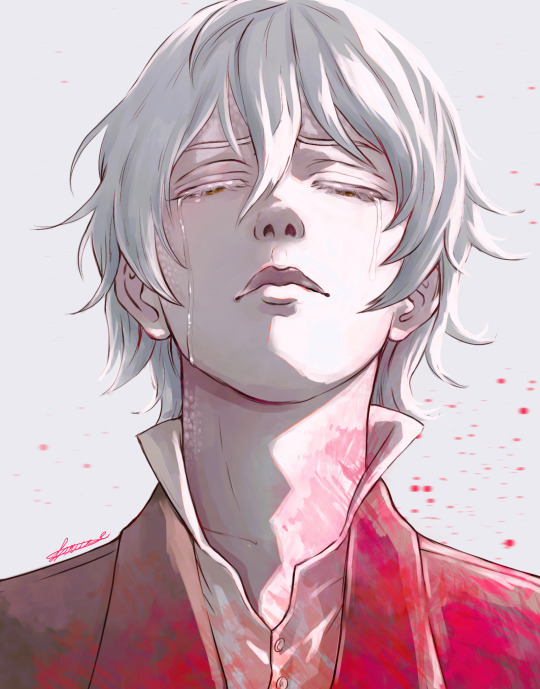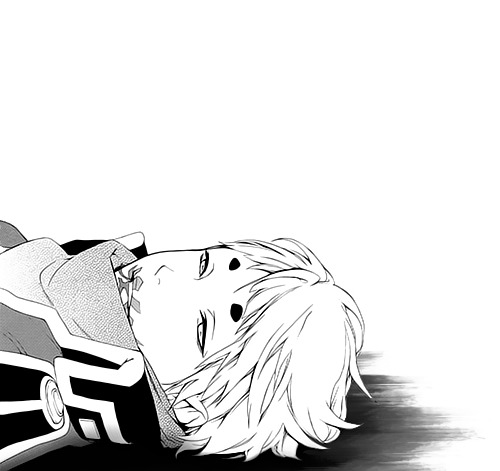Text
It's thinking about shisui uchiha hours
#shisui uchiha#this man is my roman empire#2 minutes screen time and I think about him at least once a month
2 notes
·
View notes
Text
Guysss I've just made a tiktok account for the wip I'm currently working on, I'd be so grateful of anybody decided to support me, this project matters a lot to me and it's also the reason why I've been so inactive here on Tumblr lately btw the account is named @/gaspofthesoul0
(Here the link wink wink )
I was thinking about posting stuff about art history and books too tho I still have to get it going ngl
#I promise as soon as I finish writing this wip I'll go back to post more here too#btw now that I think about it there are a couple requests I was almost done writing#since this week I don't have many homework I could try finish them
1 note
·
View note
Text
not sure if this has been pointed out by someone already (and apologies if it was), but vince has one of francisco goya's paintings framed in his living room. it's titled "saturn devouring his children," and it depicts a very grotesque story of the god saturn devouring his children because he was told that one day, he'd be overturn by one of them.
fun fact about this painting: it's part of a larger series called "the black paintings," a series of paintings goya painted for himself to cope with his loss of hearing. they were all done on the walls of his house. saturn devouring his children, in particular, was painted on HIS KITCHEN WALL.
goya's loss of hearing. vince's loss of taste. i just think it's really interesting how vince has not one but TWO goya paintings framed in his house for this very connection.
the kicker however, is that vince's restaurant itself is named "la guele de saturne," which is french for "the maw of saturn." maw meaning, "the throat or the jaws of a voracious animal."
i think you can see what i'm getting at!! take what you will this piece of info LMFAO
89 notes
·
View notes
Text
References in Servamp
Arabian mythology
Jinn. Ch. 16
Greek mythology
Elpis. Ch. 75
Moirai. Ch. 108
Pandora. Ch. 130
Pygmalion. Ch. 123
Pandora's Box. Ch. 97
Japanese mythology
Gashadokuro. Ch. 129
Kitsune. Ch. 3
Raijin. Ch. 85
Norse mythology
Baldr. Ch. 39
Freya. Ch. 65
Frey. Ch. 131
Gleipnir. Ch. 101
Hati. Ch. 91, 131
Hod. Ch. 39
Hliðskjálf. Ch. 96
Idunn. Ch. 65
Loki. Ch. 15
Mimir. Ch. 29
Mjölnir. Ch. 53
Ragnarök. Ch. 101, 122, 131
Sigurd. Ch. 101
Thor. Ch. 41
Yggdrasil. Ch. 42
Biblical references
Abel. Ch. 8
Adam. Ch. 128
Boaz and Jachin. Ch. 42
Eden. Ch. 21
Eve. Ch. 1
John the Baptist. Ch.122
Lucifer. Ch. 135
Nod. Ch. 29, events
Hinduism
Asura. Ch. 57.5, 89.
Tarot
The Fool - Mahiru. Ch. 50
I. The Magician – Night trio. Ch. 41
II. The High Priestess – Mikuni. Ch. 42
V. The Hierophant - Shuhei. Ch. 77
X. Wheel of Fortune - Junichiro. Ch. 53
XII. The Hanged Man - Tsurugi. Ch. 50
XV. The Devil – Shamrock. Ch. 72
XVI. The Tower - Touma. Ch. 47
XVII. The Star - Iduna. Ch. 73
XVIII. The Moon - Yumikage. Ch. 69
Literary references
"Alice's Adventures in Wonderland" Lewis Carroll. Ch. 3, 4, 7, 19, 98, 122. Misono, Lily, Dodo, Mitsuki, Yamane, Hattori, Mikuni, Bad B and Good B.
"As You Like It" William Shakespeare. Ch. 10, 38.5. Mikuni's spell.
"My Fair Lady" English nursery rhyme. Ch. 10 Mikuni's spell.
"Dracula" Bram Stoker. Ch. 12, 30. Hugh.
"Romeo and Juliet" William Shakespeare. Ch. 23, 34. Hyde, Ophelia.
"Faust" by Johann Wolfgang von Goethe. Ch. 29 Johannes.
"Through the Looking-Glass" Lewis Carroll. Ch. 29, events. Mikuni, Johannes.
"Julius Caesar" William Shakespeare. Ch. 23 Hyde.
"Strange Case of Dr. Jekyll and Mr. Hyde" Robert Stevenson. Ch. 23, 37. Hyde, Licht.
"Macbeth" William Shakespeare. Ch. 24, 31. Kuro, Saint Germain, Mahiru.
"Night on the Galactic Railroad" Kenji Miyazawa. Ch. 26. Higan.
"The Little Prince" Antoine de Saint-Exupéry. Ch 30, 67. Kuro, Mahiru, Sloth demon, Gear, probably Jeje.
"Hamlet" William Shakespeare. Ch. 33, 34. Hyde, Ophelia.
"The Phantom of the Opera" Gaston Leroux. Ch. 36 Licht and Hyde technique.
"Peter and Wendy" James Barry. Ch. 44, 56, 74. Tsurugi, Touma, Mahiru.
"Ring a Ring o' Roses" nursery rhyme. Ch. 53 Junichiro's spell.
“Peter Pan in Kensington Gardens” James Barry. Ch. 53, 75. Tsurugi, Touma.
"Death in Venice" Thomas Mann. Ch. 55 Gilbert technique.
"Total Eclipse" a play by Christopher Hampton. Ch. 55 Rayscent's technique.
"The Morning of the Last Farewell" Kenji Miyazawa. Ch. 57.5 Tsubaki.
"Spring and Asura" Kenji Miyazawa. Ch. 57.5 Tsubaki.
"The Catcher in the Rye" Jerome Salinger. Ch. 62 Shuhei.
"Four and Twenty Blackbirds" Agatha Christie. Ch. 62 Shuhei's spell.
"Metamorphosis" Franz Kafka. Ch. 62 Shamrock technique.
“The Nighhawk's Star” Kenji Miyazawa. Ch. 62, 76. Shamrock technique.
"Rock-a-bye Baby" an English lullaby. Ch. 70 Touma's spell.
“Schlafe, mein Prinzchen, schlaf ein” lullaby. Ch. 70 Touma's spell.
"Who Killed Cock Robin" an English nursery rhyme. Ch. 70 Yumikage's spell.
"The Wonderful Wizard of Oz" Lyman Frank Baum. Ch. 70, 88. Tsukimitsu brothers’ spells.
"Daddy-Long-Legs" Jean Webster. Ch. 74. Dark Night Trio, Touma.
"The Divine Comedy" Dante Alighieri. Ch. 118, 120, 121. Niccolo, Ildio, Gluttony demon.
“A Brute's Love” (人でなしの恋) Edogawa Rampo. Ch. 122 Mikuni, Lily.
"Coppelia" ballet Leo Delibes. Chapter 122 Mikuni, Lily.
"Salome" Oscar Wilde. Ch. 122 Mikuni, Lily.
"Turandot" opera by Giacomo Puccini based on the play by Carlo Gozzi. Ch. 129. Lily's technique.
"The Tempest" William Shakespeare. Ch. 131. Licht and Hyde.
"The Old Man and the Sea" Ernest Hemingway. Ch. 134 Hugh.
"Flowers for Algernon" Daniel Keyes. Ch. 135 Hugh.
"Jane Eyre" Charlotte Brontë. Ch. 136. Hokaze.
"Madama Butterfly" opera by Giacomo Puccini. Ch. 136. Lily.
"Hansel and Gretel" the Brothers Grimm. Ch. 140. Faust and Otogiri.
Music
"Für Elise" by Ludwig van Beethoven. Ch. 34
"Jesu, Joy of Man's Desiring" by Johann Sebastian Bach. Ch. 125
Movies
"It's a Wonderful Life" (1946). Ch. 131
"Life is Beautiful" (1997). Ch. 131
I believe this list can be expanded. Somewhere I’ve written only chaps when some reference was mentioned for the first time and omitted all further mentions.
Special thanks to hello-vampire-kitty, joydoesathing and passmeabook, because some works wouldn’t be included in the list without their observations.
183 notes
·
View notes
Text
Does anybody have any theories regarding the shinigami? Tbh I'm dying to know more about their previous lives and such
13 notes
·
View notes
Text
Tokyo Ghoul vs Literature: Dear Kafka’s Inspiration
The novel ‘Kafka on the Shore’ is another of Haruki Murakami’s works that share a connection to Tokyo Ghoul. The premiere work of novelist Takatsuki Sen, thought to be a homage to Murakami, is a short story named ‘Dear Kafka’. One possible reasoning for this titling in both works is that german author Franz Kafka was thought to have a strained relationship with his father, inspiring in some part the misery in his works. Author Takatsuki Sen definitely has deep running issues with her father, and the protagonist of Kafka on the Shore, a boy who calls himself Kafka Tamura as a pseudonym hates his father enough to run away due to previous abuse.
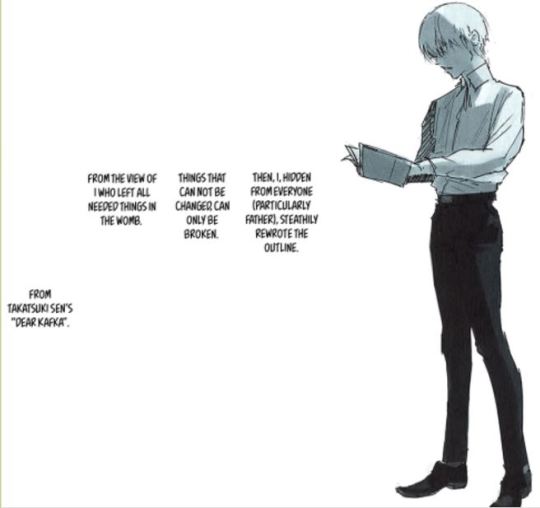
Continua a leggere
207 notes
·
View notes
Text

I am like the water when thy ship roll’d in that night
Rough on the surface, but thou cut’st through like a knife
And if we were not bound by fate,
Never would have known from the look on thy face
Lost in thy current like a priceless wine
Life was a willow and it bent before thy wind
Head on the pillow, I could feel thee stealing in
As if thou wert a mythical thing,
A chalice from the palace or a champion ring
There was one prize I would die to win
1K notes
·
View notes
Note
Nicco is a certified bbygirl in my book LMAO
Any fun hcs you have of him? Or may I request a gender neutral reader x Nicco but it's just him starting to catch onto how often reader admries him when he's not looking? And maybe a lil bit of Ildio being like "you just noticed?"
I completely agree with you, Nicco is such a babygirl yes we're literally overlooking the fact that he is also a head of the mafia
Btw it's been a while since I've written something on here, so I might be a little rusty, hope you like it anyway ahahah

First of all, some fun headcanons, tho I'd define them more as random, I think.
Since Nicco appears to be quite shy, I picture him as being the type of person who, when booking a table or even just ordering a pizza, will start stuttering and saying the most awkward stuff ever. He's probably someone who wouldn't complain if the waiter gives him the wrong order, even if it's something he doesn't like at all, he'll pretend it's fine - Ildio will end up eating his leftovers.
Back from when he was an architecture student, I think he still gets really passionate about architectures in general. If you're visiting some place with him and you pass by some random building, he will start talking non-stop about it (you can clearly see how the architecture changed throughout the centuries, of course, it still contains some neoclassical elements, but it's mostly eclectic nowadays). And there's no way to make him stop.
He probably cringes when seeing people putting pineapple on pizza and has at least once put salt instead of sugar in his coffe, in his defense he had just woken up.

Now, regarding the other part the request, here it is 💫💫💫
Nicco had never thought anybody would look up to him, admire him even. No way anyone would watch plain old Niccolò that way - it was just the way things were, he was unable to understand why his comrades, his family would see him as someone fitting to be a leader, he was so anonymous it hurt. That was probably the reason why he cared so little about his well-being, he was unimportant after all - yet everyone seemed to see something in him he couldn't quite figure out.
And then there was you, the biggest mystery. Sometimes he would catch you staring at him and then violently look away, embarassed, then, he would too pretend nothing happened. Niccolò just couldn't understand what were you looking at him for, was there something wrong with him? Was there a problem with the clothes he was wearing? He would get paranoid over it, something must have been terribly wrong, there was no other option.
From then on, sometimes, discreetly, he too would look back at you, even catching you again staring at him. Here he became even more confused - you were so interested whenever you looked at him, your eyes seemed almost shining. What was that feeling? Admiration, adoration, love? He couldn't quite grasp it.
Ildio had laughed it off when Nicco frist brought up this subject, he seemed to find the matter extremely amusing.
"Are you being serious? You just noticed?"
Niccolò hadn't really figured out what he was supposed to have just noticed, but he finally liked that feeling of being considered. He wasn't just a wallflower anymore, he felt a little more worthy of whatever was going on. He just had to gather to courage to talk to you, but there was plenty of time for that. Patience was one of his virtues, one step at a time and he would've been able to reach out for you.
20 notes
·
View notes
Text
I've just noticed a serious lack of Apollo requests 💔💔💔
besties this is not a drill, I've started writing a couple of requests!!! I'll try to post something today :D
3 notes
·
View notes
Text
besties this is not a drill, I've started writing a couple of requests!!! I'll try to post something today :D
3 notes
·
View notes
Text
the way felix is convinced he's living in a romance movie to the extent that he dresses up like juliet. he considers kissing oliver in the maze. he makes himself off limits but not quite with the open door while he's in the bath; he's the damsel of the film, no doubt. but felix's tragedy is that oliver is convinced it's a horror story and a tale of revenge. so he doesn't play his part as romeo. he vomits up the poison so he can't die from "some poison more" and leaves felix to die alone.
12K notes
·
View notes
Text
Guyssss does anybody want to be friends on goodreads? ✨️
2 notes
·
View notes
Text
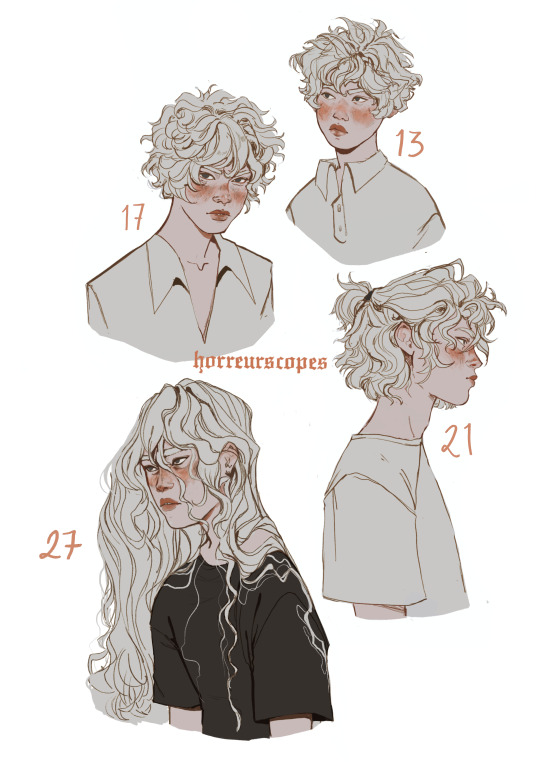
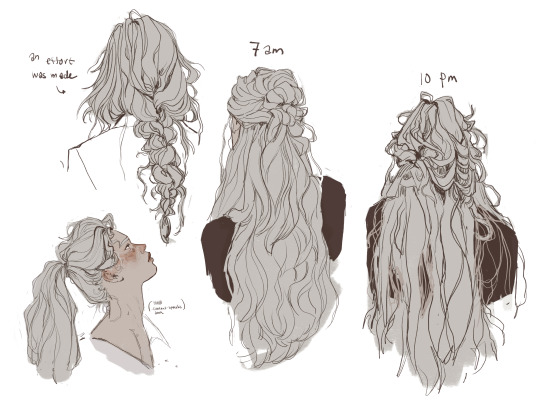
near deathnote doodles. his boyish whimsy and debilitating ptsd have captivated me.............
2K notes
·
View notes
Text

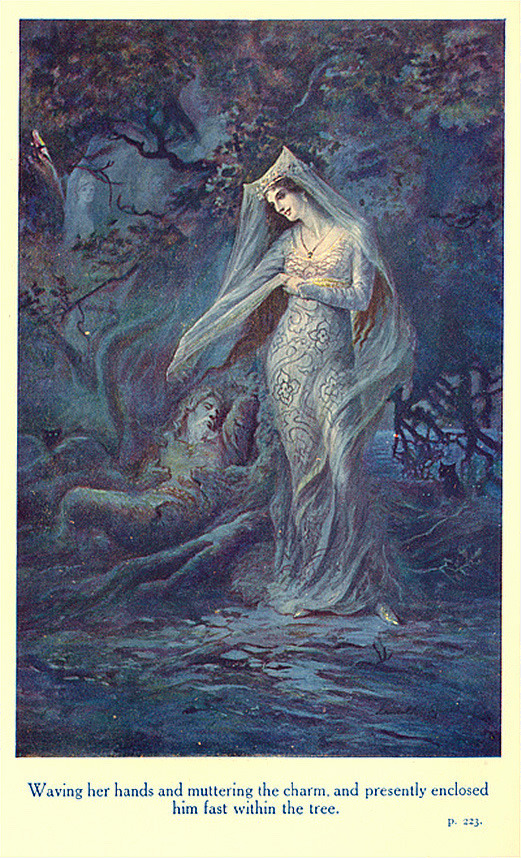
Nimuë, The Lady of The Lake, is an enchantress who lives in a realm beneath the lake surrounding Avalon. In the legend, she gives King Arthur the magical sword Excalibur, kidnaps and raises Sir Lancelot after his father’s death, and imprisons Merlin in a tree.
Depicted by Lancelot Speed for The Legends of King Arthur and His Knights, 1912.
3K notes
·
View notes
Text
In the past I've shared other people's musings about the different interpretations of the myth of Orpheus and Eurydice. Namely, why Orpheus looks back at Eurydice, even though he knows it means he'll lose her forever. So many people seem to think they've found the one true explanation of the myth. But to me, the beauty of myths is that they have many possible meanings.
So I thought I would share a list of every interpretation I know, from every serious adaptation of the story and every analysis I've ever heard or read, of why Orpheus looks back.
One interpretation – advocated by Monteverdi's opera, for example – is that the backward glance represents excessive passion and a fatal lack of self-control. Orpheus loves Eurydice to such excess that he tries to defy the laws of nature by bringing her back from the dead, yet that very same passion dooms his quest fo fail, because he can't resist the temptation to look back at her.
He can also be seen as succumbing to that classic "tragic flaw" of hubris, excessive pride. Because his music and his love conquer the Underworld, it might be that he makes the mistake of thinking he's entirely above divine law, and fatally allows himself to break the one rule that Hades and Persephone set for him.
Then there are the versions where his flaw is his lack of faith, because he looks back out of doubt that Eurydice is really there. I think there are three possible interpretations of this scenario, which can each work alone or else co-exist with each other. From what I've read about Hadestown, it sounds as if it combines all three.
In one interpretation, he doubts Hades and Persephone's promise. Will they really give Eurydice back to him, or is it all a cruel trick? In this case, the message seems to be a warning to trust in the gods; if you doubt their blessings, you might lose them.
Another perspective is that he doubts Eurydice. Does she love him enough to follow him? In this case, the warning is that romantic love can't survive unless the lovers trust each other. I'm thinking of Moulin Rouge!, which is ostensibly based on the Orpheus myth, and which uses Christian's jealousy as its equivalent of Orpheus's fatal doubt and explicitly states "Where there is no trust, there is no love."
The third variation is that he doubts himself. Could his music really have the power to sway the Underworld? The message in this version would be that self-doubt can sabotage all our best efforts.
But all of the above interpretations revolve around the concept that Orpheus looks back because of a tragic flaw, which wasn't necessarily the view of Virgil, the earliest known recorder of the myth. Virgil wrote that Orpheus's backward glance was "A pardonable offense, if the spirits knew how to pardon."
In some versions, when the upper world comes into Orpheus's view, he thinks his journey is over. In this moment, he's so ecstatic and so eager to finally see Eurydice that he unthinkingly turns around an instant too soon, either just before he reaches the threshold or when he's already crossed it but Eurydice is still a few steps behind him. In this scenario, it isn't a personal flaw that makes him look back, but just a moment of passion-fueled carelessness, and the fact that it costs him Eurydice shows the pitilessness of the Underworld.
In other versions, concern for Eurydice makes him look back. Sometimes he looks back because the upward path is steep and rocky, and Eurydice is still limping from her snakebite, so he knows she must be struggling, in some versions he even hears her stumble, and he finally can't resist turning around to help her. Or more cruelly, in other versions – for example, in Gluck's opera – Eurydice doesn't know that Orpheus is forbidden to look back at her, and Orpheus is also forbidden to tell her. So she's distraught that her husband seems to be coldly ignoring her and begs him to look at her until he can't bear her anguish anymore.
These versions highlight the harshness of the Underworld's law, and Orpheus's failure to comply with it seems natural and even inevitable. The message here seems to be that death is pitiless and irreversible: a demigod hero might come close to conquering it, but through little or no fault of his own, he's bound to fail in the end.
Another interpretation I've read is that Orpheus's backward glance represents the nature of grief. We can't help but look back on our memories of our dead loved ones, even though it means feeling the pain of loss all over again.
Then there's the interpretation that Orpheus chooses his memory of Eurydice, represented by the backward glance, rather than a future with a living Eurydice. "The poet's choice," as Portrait of a Lady on Fire puts it. In this reading, Orpheus looks back because he realizes he would rather preserve his memory of their youthful, blissful love, just as it was when she died, than face a future of growing older, the difficulties of married life, and the possibility that their love will fade. That's the slightly more sympathetic version. In the version that makes Orpheus more egotistical, he prefers the idealized memory to the real woman because the memory is entirely his possession, in a way that a living wife with her own will could never be, and will never distract him from his music, but can only inspire it.
Then there are the modern feminist interpretations, also alluded to in Portrait of a Lady on Fire but seen in several female-authored adaptations of the myth too, where Eurydice provokes Orpheus into looking back because she wants to stay in the Underworld. The viewpoint kinder to Orpheus is that Eurydice also wants to preserve their love just as it was, youthful, passionate, and blissful, rather than subject it to the ravages of time and the hardships of life. The variation less sympathetic to Orpheus is that Euyridice was at peace in death, in some versions she drank from the river Lethe and doesn't even remember Orpheus, his attempt to take her back is selfish, and she prefers to be her own free woman than be bound to him forever and literally only live for his sake.
With that interpretation in mind, I'm surprised I've never read yet another variation. I can imagine a version where, as Orpheus walks up the path toward the living world, he realizes he's being selfish: Eurydice was happy and at peace in the Elysian Fields, she doesn't even remember him because she drank from Lethe, and she's only following him now because Hades and Persephone have forced her to do so. So he finally looks back out of selfless love, to let her go. Maybe I should write this retelling myself.
Are any of these interpretations – or any others – the "true" or "definitive" reason why Orpheus looks back? I don't think so at all. The fact that they all exist and can all ring true says something valuable about the nature of mythology.
23K notes
·
View notes
